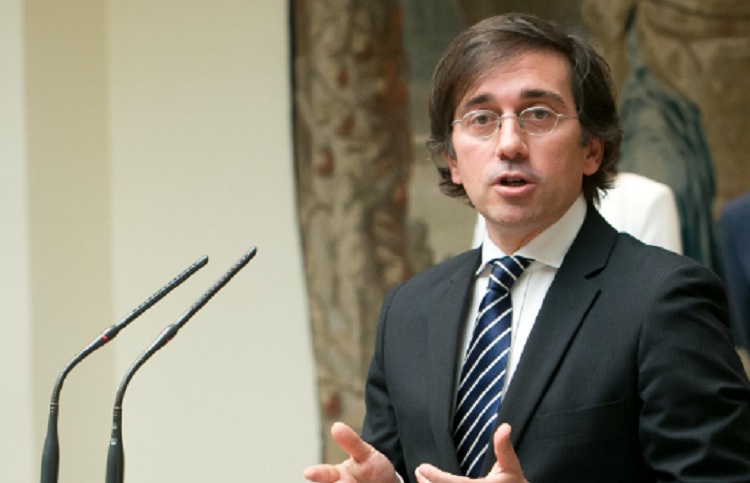The Diplomat
José Manuel Albares, current ambassador to Paris, has been appointed Foreign Minister in place of Arancha González Laya as part of the sweeping government reshuffle announced today by the President of the Executive, Pedro Sánchez.
The dismissal of González Laya was more than foreseen in case Sánchez decided on a broad government reshuffle, which has come sooner than expected. Since she came to office in January 2020, the hitherto minister was overtaken by a myriad of circumstances and bad decisions that have been aggravated by her strained relations with the Ministry’s staff and diplomats and with her evident discomfort when facing certain questions from the media.
Among her most controversial moments are the diplomatic crisis with Morocco after the entry, under unclear conditions, of the leader of the Polisario Front in Spain; the delays in the COVID-19 vaccinations to foreign personnel; the blocking, for months, of the appointment of new ambassadors (including those of India and the United Kingdom); an External Action Strategy full of fine words and lacking in clear regional or strategic objectives, the highly criticized personal meeting with the Chief Minister of Gibraltar, Fabian Picardo; the lack of real direct contacts at the highest level with the new US Administration or the habitual tendency to submit to the opinion of the EU or other actors, renouncing to take its own initiatives in international policy even in the areas of greatest potential influence of Spain, such as Latin America.
José Manuel Albares, born in 1972 in Madrid, with a degree in Law, a diploma in Business Sciences and a career diplomat, has been, in addition to the positions outlined above, Consul of Spain in Colombia, Director General for Africa (acting) in the Ministry of Foreign Affairs, Deputy Director General for Sub-Saharan Africa and Head of the Cooperation Department of the AECID, founder and coordinator of the Círculo de Reflexión Internacional and advisor on international issues during the PSOE’s election campaign in 2016.
In June 2018, he was appointed Secretary General of International Affairs, European Union, G20 and Global Security in the Presidency of the Government, a position in which he was in charge of technical and political advice and support to the President of the Government in his international activity and of preparing the international summits and meetings in which Sánchez participated and served as special envoy or sherpa for the European Union and the G20. In January 2020 he was appointed Spanish ambassador to France, shortly after his name had been considered for the post of foreign minister.
The reshuffle of the Government, which has not affected any of the five portfolios that Unidas Podemos has in the Executive, includes the departure of Carmen Calvo as first vice-president and minister of Presidency, Relations with the Courts and Democratic Memory and the assumption of the first vice-presidency, in her place, by the head of Economy, Nadia Calviño. Apart from this, the second vice-presidency goes to Yolanda Díaz and the third to Teresa Ribera.
Also leaving the Government are the Minister of Science and Innovation, Pedro Duque (replaced by Diana Morant); the Minister of Justice, Juan Carlos Campo (entering Pilar Llop, current President of the Senate); the Minister of Culture, José Manuel Rodríguez Uribes; the Minister of Transport, José Luis Ábalos (entering Raquel Sánchez); the Minister of Territorial Policy, Miquel Iceta (who moves to Culture and is replaced by Isabel Rodríguez, who will also be the spokesperson of the Government); and the Minister of Education, Isabel Celaá (replaced by Pilar Alegría).
Fernando Grande-Marlaska and Margarita Robles continue in Interior and Defense and Félix Bolaños, Secretary General of the Presidency until now and one of Sánchez’s most trusted men in Moncloa, is the new Minister of Presidency, Relations with the Courts and Democratic Memory. The new members will take office this Monday and on Tuesday they will attend the Council of Ministers. On the other hand, Iván Redondo ceases to be the head of the Cabinet of the Presidency of the Government and is replaced by the socialist Óscar López, until now president of Paradores.






